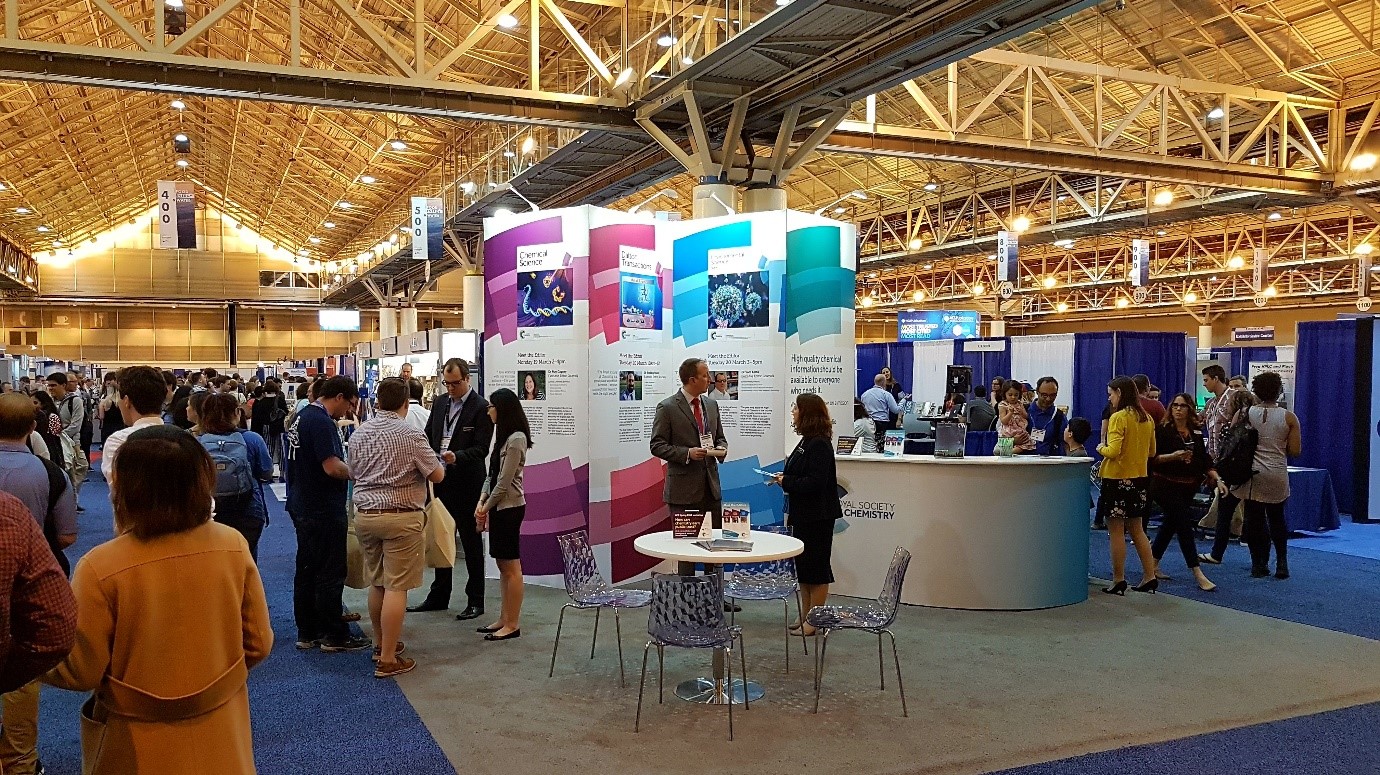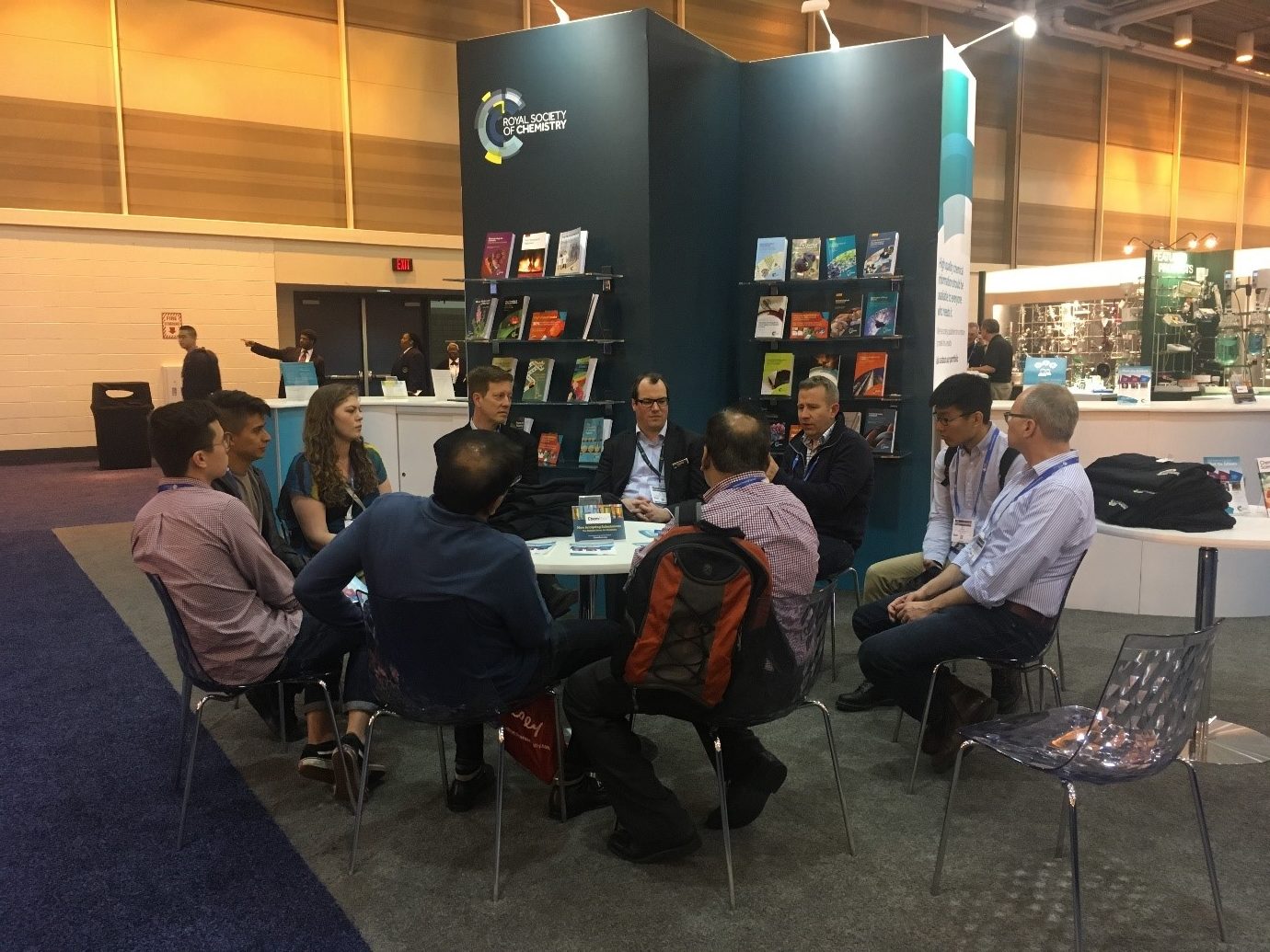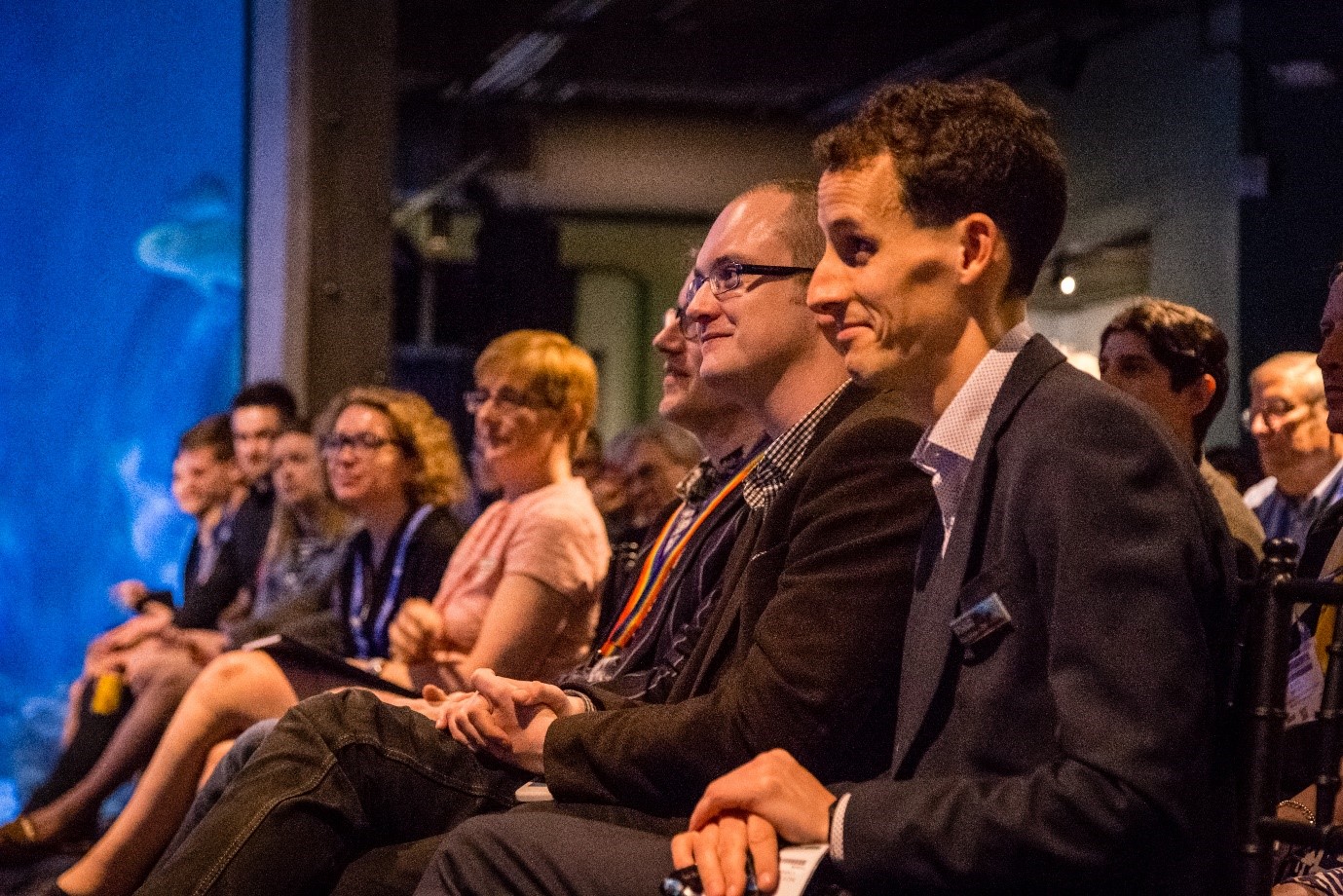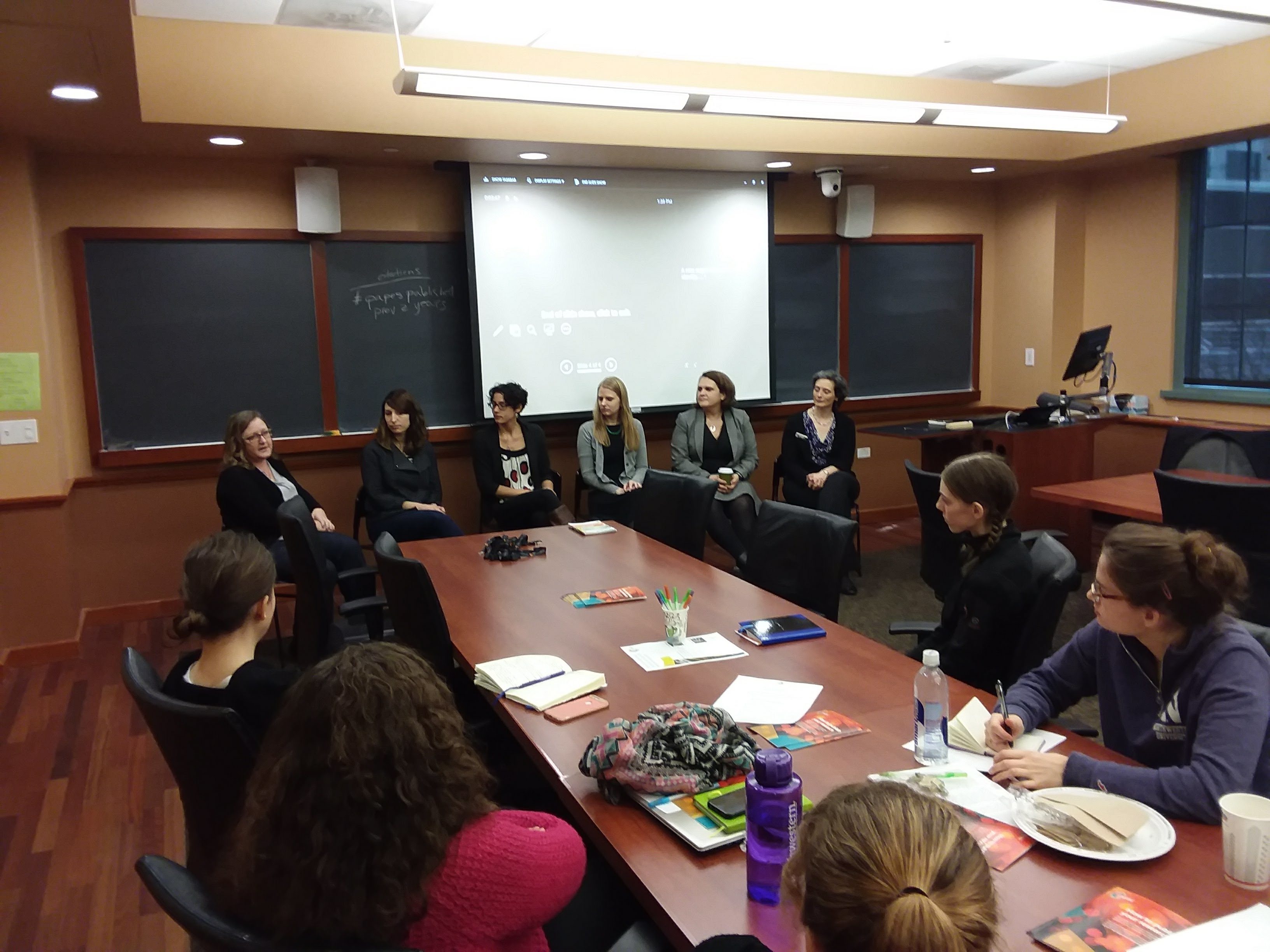We always enjoy meeting new people and catching up with familiar faces at ACS National Meetings, most recently in New Orleans. We packed our schedules with talks during the day, learning about the latest and exciting developments across the chemical sciences. Many of us attended sessions related to the Nexus of Food, Energy, and Water theme, which also aligns with the global challenges the RSC aims to support.
It was a good opportunity to congratulate Chemical Science Associate Editors Professors Kit Cummins and Mircea Dinca at MIT in person as they received ACS awards for their achievements. Editor-in-chief Professor Daniel Nocera, Executive Editor Dr. May Copsey, and many other Chemical Science Board members discussed some exciting developments for our flagship journal – stay tuned for updates on the website and learn more about the Associate Editors!

Dr. May Copsey, Executive Editor for Chemical Science, Dr. Sam Keltie, Executive Editor for the Environmental Science journals, and Dr. Jenny Lee, Assistant Editorial Development Manager, meeting attendees at the RSC booth during opening night of the Expo.
While it’s challenging to keep up with the conference programming, we wanted to spend some time to meet conference attendees at the booth and organize separate gatherings. Larger conferences are great since colleagues travel from our Cambridge, UK office. The Meet the Editor event involving Executive Editor Dr. Sam Keltie and the Editor-in-chiefs for the three sister Environmental Science journals was a nice chance to talk about publishing, and to also continue the conversation with the environmental chemical sciences community during happy hour.

Meet the Editor event with Dr. Sam Keltie, Executive Editor of the Environmental Science journals, Prof. Kris McNeill, Editor-in-chief of Environmental Science: Processes & Impacts, Prof. Peter Vikesland, Editor-in-chief of Environmental Science: Nano, and Prof. David Cwiertny, Editor-in-chief of Environmental Science: Water Research & Technology.
We also were glad to connect with a few RSC Advances Associate Editors, Editorial Board member Professor James Batteas, and Executive Editor Dr. Andrew Shore where we discussed ideas to continue developing the latest Gold Open Access option within the RSC journals. While these are only a few highlights of all the events we organized throughout the conference, we appreciated the many opportunities to hear everyone’s thoughts to guide our future activities.

RSC Members’ Reception with Dr. Guy Jones, Executive Editor for Data, pictured in the foreground.
We’d love to meet you at a future ACS National Meeting – you can usually catch most of us at the booth on the opening night of the Expo so we hope to see you soon!











